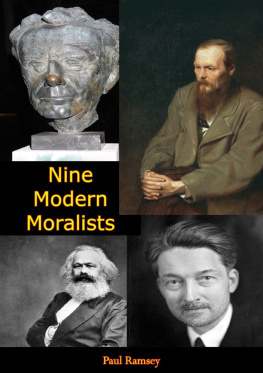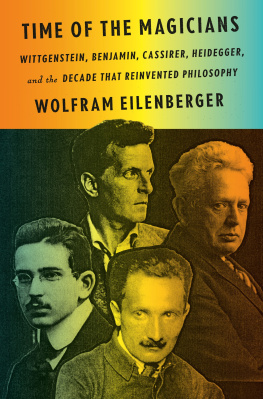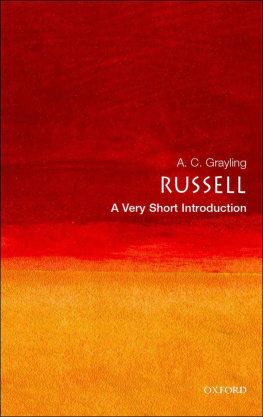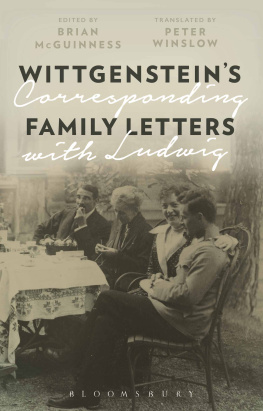SHOOTING STAR
The Brief and Brilliant Life of Frank Ramsey
KARL SABBAGH
1.
Damn my ambition!
In January 1921, on a winters evening in Cambridge, a 17-year-old Trinity College undergraduate walked home after a student debate at the Union Society. He wrote in his diary that night: Damn my ambition! It is so much of the rotten kind mere desire to be recognised as able than to be able; I spent 1 hours preparing a good speech on National Ownership and control, spent 3 hours listening to by far the dullest debate I have ever heard, nearly all the speeches being far worse than mine, and then couldnt deliver it. This was not a unique experience. The Cambridge Union Debating Society was a breeding ground for future British politicians, and the talent on display in its debates was, and is, formidable. But this undergraduates problem as he saw it was one which few of us have. It wasnt lack of talent that worried him, but that he couldnt add speech-making to a list of other glittering talents of a kind and extent which have rarely been compressed into one individual. As his diary entry continued: I cant do 4 things.... my 3 are Mathematics, Philosophy, and Political and Economic Theory I cant manage in addition oratory. In the three fields this undergraduate picked as the things he could do, he made major contributions, and all of them were achieved in the nine years after that lonely walk back to his college from the Union.
The undergraduates name was Frank Ramsey. The fields of philosophy, economics and mathematics are sprinkled with Ramsey eponyms: philosophy has Ramseys Theory of Truth, Ramseys Maxim, and Ramsey Sentences; economics has Ramsey Pricing, Ramseys Theory of Preference, a Ramsey Theory of Saving and another of Taxation, and Ramseys Theory of Probability; mathematics has a Ramsey Theorem, Ramsey Numbers and Ramsey Cardinals. There is even a procedure in logic called Ramsification.
The ideas represented by these eponyms are not insignificant wrinkles in the broad fabric of human inquiry. Currently, the ideas of this young man who died at the age of 26 are cited in at least 500,000 web pages, many of them relating to current developments in economics, mathematics and philosophy. Yet ask the man or woman in the street, and you are unlikely to find anyone who has heard of him, let alone appreciates his work.
Frank Plumpton Ramsey was a British mathematician and philosopher who had one of the most extraordinary minds of the 20th century and who, if he had not died prematurely, might have transformed whole fields in philosophy, mathematics and economics. Yet after his death in 1930, Ramseys ideas largely disappeared from view, and were unappreciated outside Cambridge. They began to resurface in the mid-20th century as scholars in those disciplines discovered that ideas they thought their own could often be found in Ramseys work much earlier.
This phenomenon itself led to another eponym, the Ramsey Effect, coined by U.S. philosopher, Donald Davidson: For any theory that X believes to have discovered, it is likely that it was anticipated in some form by Ramsey.
Even as a schoolboy Ramsey showed signs of a formidable mind. While still at Winchester, his private school, he had written a paper on a now forgotten topic, the social credit proposals of a Major C. H. Douglas, whose utopian ideas on economics were taken up by Ezra Pound. This paper led Ramseys father to say to a friend that it would have won him a Fellowship in any University anywhere in the world instantly. Even making allowances for parental pride, Ramseys father, President of a Cambridge college and a mathematician, was not far off the mark in his judgement of his sons abilities.
As with many individuals who later acquire an aura of genius or heroism, there is an accretion of stories about Ramseys early life, which prefigure or dramatise his unusual qualities. One of them relates to how he came to learn German, a language in which he became proficient enough to play a major part in the translation of Wittgensteins Tractatus.
The story takes place in the rooms of C. K. Ogden, the founder of Basic English, who edited a weekly left-wing periodical called TheCambridge Magazine. Ogden was a Cambridge character, intellectually brilliant but incapable of handling money and therefore constantly infected with what he called hand-to-mouth disease. Among Ogdens contributions to the well-being of mankind was a campaign to provide new underclothes for the embalmed corpse of the Victorian philosopher Jeremy Bentham, then and still today on display in the main entrance hall of University College, London. He also circulated a spoof description of an American university, allegedly from a Chinese source, as a solely social and athletic institution, where opportunities of study are provided for the feeble-minded.
Ogdens cluttered rooms were above a fishmongers shop in the centre of Cambridge, and he and his friend and colleague, I. A. Richards, were visited one day by the young Frank Ramsey, then still at school: [There was] a tap on the door and in came this tall, ungainly, rather gangling boy, recalled Richards, interviewed in 1978 for Professor Hugh Mellors BBC radio portrait of Ramsey.
We knew who he was instantly he looked so like his mother and in no time almost he was at home. He was from Winchester where hed been for some time with no one doing much more than saying The library is yours, just do what you want. There he was, and we chatted along for some time, and then he turned to Ogden and said: Do you know, Ive been thinking I ought to learn German. How do you learn German? Ogden leaped up instantly, rushed to the shelf, got him a very thorough German grammar and an Anglo-German dictionary and then hunted on the shelves and found a very abstruse work in German Mach's Die Analyse der Empfindungen and said: Youre obviously interested in this, and all you do is to read the book. Use the grammar and use the dictionary and come and tell us what you think. Believe it or not, within ten days, Frank was back saying that Mach had misstated this and that he ought to have developed that argument more fully, it wasnt satisfactory. Hed learned to read German not to speak it, but to read it in almost hardly over a week.
The legendary quality of the German story is enhanced by the fact that it exists in another version, often told by the U.S. Nobelist, Paul Samuelson, to his students. Barely a detail is the same:
There was Frank Ramsey, on his first day as an undergraduate at Cambridge, wanting to discuss with Ogden (his philosophy tutor) some ideas he had about essence and being. After listening, Ogden said, These notions are rather like those of Kant. Kant? Who is he? was Ramseys reply. Immanuel Kant was the author of this book Ill lend you, Kritik der reinen Vernunft. But its in German, sir, and I dont know any German. Thats all right, Ill lend you this dictionary. A couple of weeks later Ramsey came back to Ogden saying Kant has it almost right, but..."
Early in 2007, at the house of Ramseys daughter Jane Burch, who was three when her father died, I opened Ramseys schoolboy journal for 1920. It was in a foolscap commercial diary. Printed notes for January 1st included Dog and Establishment Licences due, Kings Taxes due, and Holiday on Stock Exchange. In Ramseys teenage scrawl, he had noted for that day: 7.15 Service at Emmanuel, Tennis in morning, Read Industry and Trade (Marshall), Invitation from Miss Huskisson, Lost bet about Montys letter.
As I leafed through the diary I noticed several references to German and wondered whether I would find the truth about which book, Kant or Mach, Ramsey had read so precociously. And there it was, on 21 April 1920: Started Mach. Analyse der Empfindungen in German. But I found something more. Three months before this entry, on 19 January was another that said: Did a good deal of German. Then, on 15 April, is an entry about the visit to Ogden in his rooms above the fishmonger: Reading some Heine. Ogden said read some stiff German book with an English [translation].
Next page








